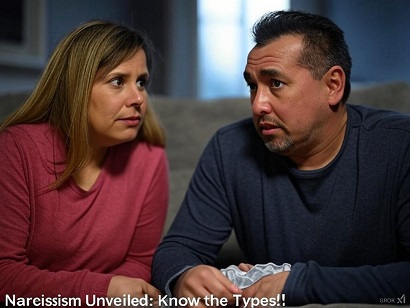Unveil the Narcissist: Grandiose, Covert, Malignant
Unveil the Narcissist: Grandiose, Covert, Malignant

The Many Masks of Narcissism: Understanding Subtypes and Their Impact on Relationships
Welcome to MetroPsychologist.com! Navigating the complexities of relationships is an ongoing journey. Today, we'll delve into the realm of narcissism, a personality disorder that can significantly impact romantic partnerships, friendships, and family dynamics. But narcissism isn't monolithic. Let's explore the different subtypes of narcissism – grandiose, covert, and malignant – and how they manifest in relationships.
Understanding Narcissistic Personality Disorder (NPD)
Narcissistic Personality Disorder (NPD) is characterized by an inflated sense of self-importance, a deep need for admiration, and a lack of empathy for others. Individuals
1 with NPD often have fragile self-esteem masked by a grandiose exterior. Their relationships are marked by a one-sided focus on their own needs and a disregard for the feelings of others.
However, not all narcissists present in the same way. Here's a closer look at the major subtypes and how they can impact relationships:
1. The Grandiose Narcissist: The Charmer with a Hidden Agenda
Characteristics: Grandiose narcissists are the stereotypical narcissists – charming, confident, and often successful. They crave admiration and believe they deserve special treatment.
Relationships: In relationships, grandiose narcissists can be initially captivating. They shower their partners with affection and attention, but this often masks a manipulative agenda. They have difficulty maintaining healthy boundaries, expect constant praise, and are hypersensitive to criticism. When their needs aren't met, they can become devaluing and abusive.
Example: Peter, a grandiose narcissist, showers his partner Sarah with compliments and grand gestures. He enjoys taking her to expensive restaurants and flaunting their relationship on social media. However, Peter is easily threatened by Sarah's accomplishments and belittles her subtly when she receives recognition. He becomes withdrawn and sulky if she prioritizes spending time with friends.
2. The Covert Narcissist: The Martyr with a Hidden Agenda
Characteristics: Unlike their grandiose counterparts, covert narcissists present as shy, self-deprecating, and often the victim. They crave validation and sympathy but through indirect means.
Relationships: In relationships, covert narcissists can be emotionally manipulative. They guilt their partners into giving them attention and support through self-pity and exaggerated stories of their misfortunes. They can be passive-aggressive, subtly criticizing their partners while claiming they're "being sensitive."
Example: Emily, a covert narcissist, portrays herself as a victim of circumstance. She constantly complains about her job and family, subtly seeking her partner's constant reassurance and support. When her partner suggests she take action to improve her situation, Emily becomes defensive and accuses them of being insensitive.
3. The Malignant Narcissist: The Envious and Vindictive Predator
Characteristics: Often considered the most dangerous subtype, malignant narcissists possess the traits of both grandiose and covert narcissism. They are envious, ruthless, and prone to anger and aggression.
Relationships: Relationships with malignant narcissists are often toxic and abusive. They are highly manipulative, controlling, and prone to outbursts of rage. They exploit and belittle their partners, leaving them feeling worthless and emotionally drained.
Example: David, a malignant narcissist, constantly compares himself to others and feels intensely envious of his partner's achievements. He belittles her success at work and secretly tries to sabotage her projects. He is prone to emotional outbursts and uses threats and intimidation to control her behavior.
Impact of Narcissism on Relationships
Being involved with someone who has NPD can be emotionally damaging. Here's how each subtype can specifically impact relationships:
Grandiose Narcissist: Creates a one-sided relationship focused on their needs. Partners feel emotionally neglected and eventually resentful.
Covert Narcissist: Creates a dynamic of guilt and manipulation, leaving partners feeling emotionally drained and responsible for the narcissist's happiness.
Malignant Narcissist: Creates an abusive and dangerous environment. Partners can suffer from low self-esteem, anxiety, and even post-traumatic stress disorder (PTSD).
If You're in a Relationship with a Narcissist
If you suspect your partner exhibits narcissistic traits, it's crucial to prioritize your own well-being. Here are some steps you can take:
Educate yourself about narcissism. Understanding the dynamics can help you set healthy boundaries.
Set clear boundaries and communicate your needs. This can be difficult, but asserting yourself is important.
Prioritize your mental health. Seek professional support from a therapist who specializes in relationship dynamics with narcissists.
Consider if the relationship is salvageable. In some cases, therapy for both partners may be beneficial. However, in others, a healthy separation might be necessary.
**Remember, you are not alone
© 2025 www.metropsychologist.com
